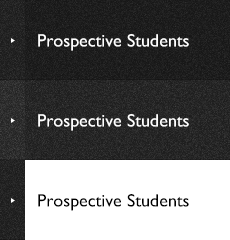Our goal is to produce specialists in innovation who create new social and economic values based on a deep understanding of science, technology, and socioeconomic systems. In order to achieve this, we have designed a comprehensive curriculum that fosters business people who create groundbreaking knowledge in technology and business management, and strategically design, plan, and execute new businesses and projects. It also cultivates innovators who work towards a prosperous society by fueling the creation of scientific and technological knowledge and incorporating this new knowledge into society and industry. The curriculum includes courses that deal with product and service design, and those that examine methodologies used to analyze and think, such as mathematical and information analysis and knowledge engineering. Specialized knowledge of technology management, such as management of intellectual property and standardization, and advanced knowledge of industry sectors and technologies, such as energy, biotechnology, and information, are also covered. Along with this, practical abilities to realize innovation are developed through practicums where students engage in discussions with business managers, policymakers, and experts at the forefront of business management, science, and technology, and propose projects and policies built on advanced technologies. Furthermore, through broad research activities where issues are deeply investigated and problems are solved, students form the ability to make decisions on their own using logic based on facts, and learn to take the lead to overcome difficulties and make breakthroughs.
-
- Basic Technology Management
- In these courses, students develop their skills to analyze, think, and communicate in order to improve their ability to make decisions on their own using logic based on facts, and to learn to take the lead to overcome difficulties and make breakthroughs.
-
- Advanced Technology Management
- In these courses, students learn methodologies and develop literacy to create groundbreaking knowledge in technology and business management, and to strategically design, plan, and execute new businesses and projects.
-
- Economic and Social Systems
- Working towards a prosperous society that incorporates newly created scientific and technological knowledge into society and industry does not only involve knowledge of science and technology. In these courses, students systematically acquire an extensive understanding of the economy and society, which are also essential to realize this prosperous society.
-
- Practical Technology Management
- In addition to understanding the trends at the forefront of science, technology, industry, politics, management, etc., these practical courses establish a foundation for reviewing oneself and opening up new career opportunities.
-
- Research Seminars and Internships
- In these courses, students develop their practical abilities for innovation through broad research activities that require them to establish problems by themselves and thoroughly investigate theories and events to resolve these issues.
*1 Indicates the standard model where the professional master's program is completed in two years.
. Any information published on this site will be valid in relation to Science Tokyo.


